By Uran Kalakulla
Part thirty-seven
Nazism and communism
Memorie.al / Nazism lasted 12 years, while Stalinism lasted twice as long. In addition to many common characteristics, there are many differences between them. The hypocrisy and demagogy of Stalinism was of a more subtle nature, which was not based on a program that was openly barbaric, like Hitler’s, but on a socialist, progressive, scientific and popular ideology, in the eyes of the workers; an ideology that was like a convenient and comfortable curtain to lie to the working class, to lull the sharpness of intellectuals and rivals in the struggle for power.
One of the consequences of this peculiarity of Stalinism is that the entire Soviet people, its best, capable, hardworking and honest representatives, suffered the most terrible blow. At least 10-15 million Soviets lost their lives in the torture chambers of the KGB, martyred or executed, as well as in the gulag camps and others like them, camps where it was forbidden to correspond (in fact they were prototypes of the Nazi death camps); in the mines in the ice of Norilsk and Vorkuta, where people died from cold, hunger, from crushing labor in countless construction sites, in the exploitation of forests, in the opening of canals and during transportation in lead-lined wagons, or in the flooded barns of the death ships.
Continued from the previous issue
My linguistic book had at its beginning a long introduction, about 60 pages, on the problems of linguistics, such as: what is linguistics, what does it deal with, how did language arise, and what about writing, how many languages and how many types of writings are there, what is the relationship between language and thought, how is speech articulated, which organs or parts of them in the speech apparatus participate in it, is language related to politics, what are the parts of language, its disciplines, and grammar, etc., etc.? So it was an almost complete and informative exposition of the science of linguistics, summarized and simplified. But in it, of course, there were also problematic issues, because not everything in my presentation corresponded to the Marxist worldview. And this was the “Achilles’ heel”, in the position I was in. And after this eloquent introduction for me, came the actual subject of grammar.
Original and I think valuable in my book were both the concrete, almost materialized explanation of grammatical phenomena, that is, its concretization, and the illustrative schemes and sketches that accompanied this study. There were about sixty sketches, diagrams, concrete tables, and so on. I say that if I had published it then, in some educational journal, and if I had been a party member, I think they would have made me a candidate of sciences immediately, if not immediately a doctor of science, as some do today, who do not know if they have ever published even a single book in their lives. They became such by… presidential decree!
When it came time to submit this “Grammar”, a month before my release, to be examined by the “experts” of the Ministry of the Interior, I preferred to burn it myself, rather than have it burn me, becoming a “corpus delicti” against myself. So, a tragicomedy in prison itself: work against the author! And this was the climax of climaxes. So, my reasoning was simple: it is better for the head to come out of prison than the work. Because the work cannot make the head, but the head makes it. And like this innocent grammar, with this logic, I burned, as we will see below, some of my writings and other works, written in prison, when it was impossible to get them out illegally, as I had done before.
They would check them in the ministry, but who, the police or the ignorant officers? No more, in that damn ministry, some kind of writers, party members and hardened Securitate members, who received special salaries, even fatter than their colleagues in the profession, when the Securitate, whether they wanted to or not, had trapped them. These are the people who live and act even today without a trace of shame, still participating in literary circles. These are the censors of the State Security who have taken on the necks of so many writers, artists of the brush and music, who were badly sent to prisons, some of whom even found death. So I burned my writings, so that these dogs and sons of dogs would not burn me more than I had burned until then.
After the grammar, I wrote a “Method for learning Italian”, entitled “La lingua italiana, per gli Albanesi”. It was a four hundred page book, with 100 lessons, in addition to the literary parts at the end of the text. Exactly how these things are done. Each lesson had its own vocabulary, plus idiomatic expressions of Italian. In fact, in the second part there was also a kind of short history, both of the language and of Italian literature, of its most prominent authors, of course, from the “Dolce stil nuovo”, of the Sicilian school, to Italian neorealism: Moravia, Italo Calvino, Vasco Pratolini, which I had managed to read before I was imprisoned. In this work, I was also helped by an old anthology that had remained in prison, I don’t know by whom.
Of course, I didn’t write that method because I had hopes that it wouldn’t be published when I got out of prison, but to strongly help those young people who wanted to learn the language of Dante, Leopardi and Pirandello, whom I have always valued and loved. Another work, this time literary, was the one entitled “Portraits”. It remained unfinished and was burned as it was. It had about 200 pages by then and contained negative portraits of some defective people that I had known and knew during my odyssey through camps and prisons. They were mainly “intellectuals” with serious character flaws, upbringing and culture.
They were temperaments that stood out, both for their arrogance and for their mental and spiritual emptiness. In drafting this work, I took “inspiration” from the “characters” of both the ancient Theophrastus and the French classic La Bruiere. Even today, when I recall some things from that book, it seems to me that I had hit the mark beautifully, without even looking at myself. I gave the manuscript, not completely finished, to my friend and friend, Gjergi Komnino, to read, just as I had given it to my other trusted friend, Frano Jaku from Shkodra, in the Elbasan prison camp. Both were very surprised, even enthusiastic.
But Professor Komnino advised me that keeping them in prison, if found by the command (meaning the operative), would get me into a lot of trouble. And then I burned this one too. But I felt a very deep regret, from such an action, although obligatory. In fact, that regret still echoes to this day, in my soul. After the title of each character, came his cartoon caricature and then an epigram. Only after them came the analysis of the character in question, sometimes with grotesque terms, sometimes with a comic pomposity, sometimes with the leaven of an irony, even of a bitter sarcasm of legitimate indignation.
Oh, how valuable that book would be if it were published today, where many charlatans and defectors would find themselves, who have shamelessly taken up the banner of victimhood and heroism, that is, of the saints martyred by Red Nero, when they themselves came close enough to their former persecutors with their petty deeds. Then I wrote a book of stories and novels. I don’t remember exactly how many there were, but I remember both the number of pages in that manuscript and some of the titles. The volume had a title, perhaps provisional; “Pan-European Stories and Novels”, with 300 pages, and still unfinished.
Here are some titles: “The Air Shark”, “Heart and Duty”, “The Murder of the Jew Schwarz”, “Can You Love for Mercy”? “The Temptation of the Name Lili”, “Fear of Disappointment”, “summer”, “The Misadventures of My Colleague”, etc. I kept these stories open, and even gave them to someone to read when they asked for them. I had presented them as translations from European literature. For example, the first story was supposedly set in Norway and its author was also a Norwegian, Knut Jorgensen, (which I wasn’t sure if it sounded exactly Norwegian), the second was set in France during World War I, with a spy game in it, love intertwined with espionage, supposedly authored by François Blanchaire.
The third was set in Austria, by Hans Klein, and the theme was the time between the two great world wars. A fourth, which I forgot to mention above, according to the order at that time, was entitled “The Ring of Davos”, and it was about the environment of the Royal Court of the Serbian Obrenović dynasty, on the eve of the coup d’état by the Palace officers who overthrew that dynasty and raised the Serbian Karađorđević dynasty to the throne, with Alexander at the head, who, as is known, was killed in Marseille, before the Second World War.
These stories were not entirely the fruit of my imagination, for the most part, because I had taken the impetus from some previous readings or, true stories of a friend of mine in a prison camp or prison. Thus, the first story had its origin in a true event that occurred in our country during the Second World War, when an English plane machine-gunned both civilian cars and pedestrians on the Tirana-Shkodra road! The one with the title; “The Heart of Duty” was inspired by the memoirs of the head of British counterintelligence during the First World War, Colonel Orest Pinto.
The story “The Murder of the Jew…” was based on what had really happened in Vienna in the twenties, an event that had been widely reported in the Viennese newspapers and all of which had been told to me in the Elbasan prison camp by my good and honest friend, the late Fehmi Beshiri, who had been a medical student in the Austrian capital at that time. The other stories were from my personal experience or that of my close friends, who had not hidden anything from their personal lives from me. So I had followed exactly the path of a realistic, serious writer. And for that I was proud.
But these stories were also given to the fire, that is, to hell. Meanwhile, as a kind of interlude, I had compiled a “History of Philosophy”, summarized in four Chinese notebooks, those that had, if I’m not mistaken, 60 pages each. In compiling it, I had recorded what I remembered from my pre-trial detention studies. And my memory at that time was quite strong. As is fitting, the first notebook had Greco-Roman philosophy, that is, classical antiquity. The second had the middle Ages and the beginnings of the Renaissance. The third, what came after, until the end of the 19th century? The fourth had the philosophy of the sub-centuries, with an appendix on Freudianism.
For the last notebook, I also relied on the one-volume text by Guido De Ruggiero, a favorite author of mine, even more so than Paulo Lamanna. But of course, I did not make a simple translation, but an abridgement and my own interpretation. And all this work had two purposes. First, to create a manual that, by looking at it from time to time, would serve me so that I would not forget what I knew, that is, to serve me as a kind of reservoir, where I could refer to in the “season of absolute drought, so as not to be left without a drop of water, in the middle of the heat”!
The second reason was that this manuscript book would also serve one or more other intellectuals in prison, who for one reason or another, were almost completely unfamiliar with philosophical culture. Because when I went to Burrel, in 1968, I did not find any history of philosophy there. Those that had been there before, if they had been, had disappeared without a trace. But, like other manuscripts, this work was lost, in the same way as the others.
The penultimate work I wrote in Burrel was a novel with a historical background, entitled “Fajkoi i Arbërit”, starring Avni Rustemi, a character I had quite liked in my early youth. Of course, at my current age I no longer have that feeling for his figure, because the kind of radicalism I found in Avni no longer excites me. Winston Churchill said very well that young people who are not revolutionaries are not right, while mature revolutionaries are not right in their minds. I may not remember the original word for word of the great Englishman’s statement, but I believe that I am not mistaken in the content, in the meaning of his words.
This novel covered the historical period from the end of the 19th century until December 1924, when Zogism won. The book in question had 700 or so pages in manuscript, divided into 18 chapters, each of which had an introduction or, as I called it, a short “prologue”, like a kind of poetic prose, which contained the meaningful essence of the chapter. I don’t remember how many real historical characters my novel had, much less how many fictional ones. But there were certainly over 200-300!
There was Noli, Bajram Curri, Luigj Gurakuqi, Stavri Vinjau, Sezai Çomo (the latter as Avniu’s closest friend), Ali Këlcyra, Reshat Erebara, Halim Xhelo, a good part of the main “comrades”, and on the opposing side Esat Toptani, members of the French court in Paris, Ahmet Zogu, Shefqet Vërlaci, Iljaz Vrioni, Koço Kota, Panadeli Evangieli, and many others from both sides, even characters from Noli’s Government, after the June uprising (1924), such as Shefqet Korça, Haki Tatzati, Rexhep Shala, Xhemal Bushati, and so on.
I wrote this voluminous novel in one go, within three months. It took me the same amount of time to rewrite it in clean, legible writing, script. But I worked non-stop for over 14 hours or more a day. And the source I relied on, more or less, was only the “History of Albania”, from the University of Tirana and some monographs of the time, as well as what I had been able to read, before being imprisoned, in old newspapers found by friends, books and brochures from before Zog came to power, some of which I had at home, in the family library bequeathed by my father, which no longer exists today, because I don’t know where it ended up after my imprisonment.
Some of my roommates also read the novel in question and they liked it a lot. In it, of course, I had also poured out my political thoughts, even if in a somewhat camouflaged form. But it was clear that the camouflage was weak, because they emerged quite openly from time to time. Therefore, I had to eliminate this “dangerous” novel, which revealed my basic political and social ideas, certainly with great pain, to escape certain re-conviction, if that book fell into the hands of the censors of the Ministry of the Interior, a month before the long-awaited day of my release.
The last novel, also with a historical background, that I wrote in prison was the one with the title “Illyrian Fatality”, and with the subtitle “Platori and Etleva”. As the title suggests, the novel spoke both about the reality of the last Ardian state of King Gent, and about the last Illyrian-Roman war (167-168 BC), which put an end to Illyria as an independent territory and which brought about several centuries of Roman rule over it. I took the subject from books IV and VI of Titus Livius, this very interesting Roman historian.
Then I consulted, in addition to the part on Illyrian antiquity of the History of Albania and Rome, other sources with reproductions in Albanian of ancient Greco-Roman historians, from Herodotus to those who were either contemporaries or close descendants of the time in which I was interested. Even on a romantic legend about the love of two young people, Plator of Ardia and Etleves of Dardana. Of course, in this novel, I also included my critical ideas or views on that ancient historical period.
Unlike the first, this novel had fewer pages, about 450, with my fine writing and in tight rows. It had 30 chapters, and of course with a prologue at the beginning and an epilogue at the end. I wrote these two books with the idea of writing a series of historical novels, with the background of our national history, from antiquity to the days of prison. I had a big plan ahead: Antiquity-Middle Ages-Renaissance-Modern Times. Or more precisely: Illyrian fatality, Batoja (Illyrian Spartacus), Karl Topia, Lekë Dukagjini (after the death of Skanderbeg), Karamahmud Pasha, Abdyl Frashëri, Ismail Qemali, Avni Rustemi, Myfit Libohova, Mirash Ivanaj, Mit’hat Frashëri, Muzafer Pipa, Kalvari i Kuq!
The titles themselves clearly indicate both the historical period and the protagonists and themes of these novels, all of which have a historical background. And I was very enthusiastic about this work. It was, therefore, a whole necklace of works, with the most typical representatives, in my opinion, of those periods of Albania’s spicy history. And, to be sure, with that momentum of work that had seized me then, I had also completed such a work, certainly in five or six years. I was still young then, and not like today when I am writing this book, over seventy years old. But what stopped me was the news I learned in the newspaper “Drita”, the organ of the Albanian Writers’ League, which said that Sterio Spasse would also make such a rough plan.
I had read a novel of his from his “necklace”, something about the Renaissance period, but I didn’t like it at all. Then I gave up on my grand plan and was carried away by boredom and a kind of incomprehensible disappointment. I also wanted to burn the Illyrian novel, but since I didn’t have time, I left such a task to my prison and roommate, Abdulla Sollaku (now an immigrant in Germany, since the “attack” on the embassies). I got out of prison in the meantime and he didn’t burn it.
It seems that he liked the novel, appreciated it and felt sorry for his “harakiri”. Thus, he not only preserved it, but put his name at the top, taking all possible negative responsibilities upon himself. And when he finally came out of prison, near the year ninety, the book was back in my hands, which I still keep today. I feel strongly obliged by the action of my honest, noble and manly friend, and from the soul I express with these modest lines my deepest gratitude.
Here, this was my odyssey of writings and studies in prison. A story, I believe, as interesting as it is characteristic, if not “heroic” or “carambolesque”. In the chapter that continues, we will get to know even better the “prison culture” of others. / Memorie.al




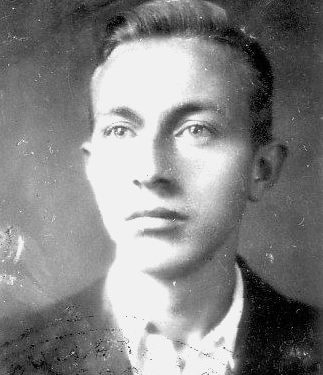
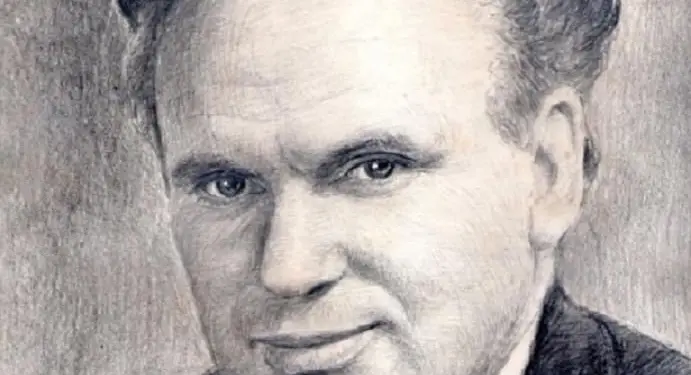
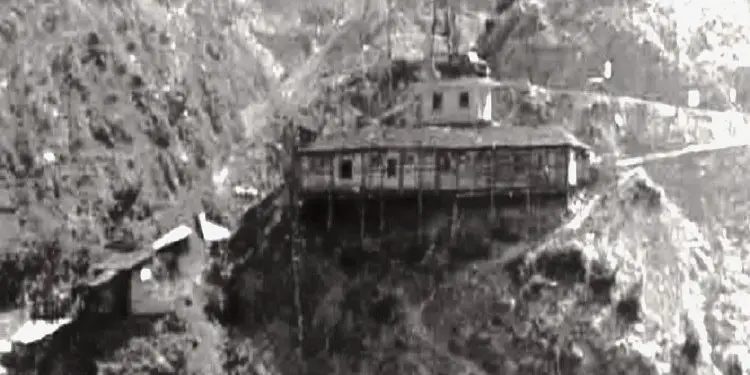
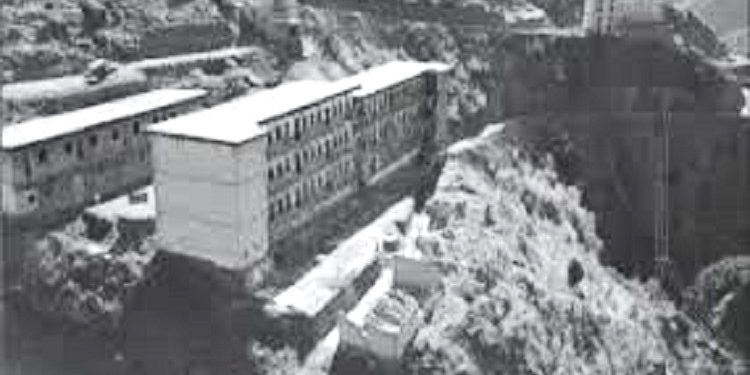
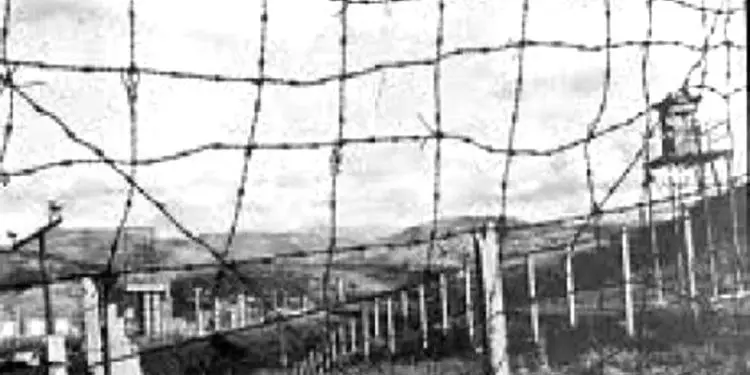
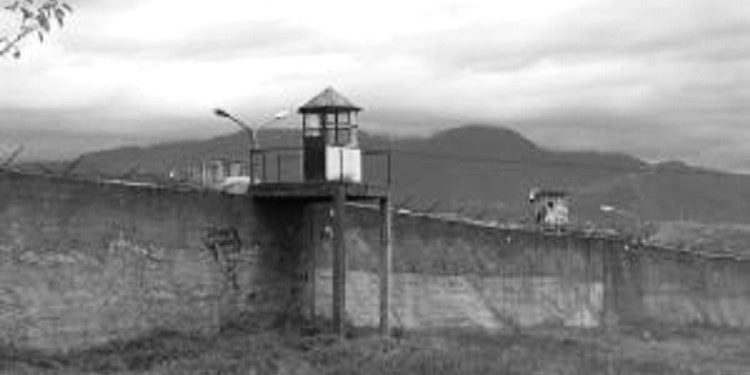
![“The ensemble, led by saxophonist M. Murthi, violinist M. Tare, [with] S. Reka on accordion and piano, [and] saxophonist S. Selmani, were…”/ The unknown history of the “Dajti” orchestra during the communist regime.](https://memorie.al/wp-content/uploads/2026/02/admin-ajax-3-350x250.jpg)
![“In an attempt to rescue one another, 10 workers were poisoned, but besides the brigadier, [another] 6 also died…”/ The secret document of June 11, 1979, is revealed, regarding the deaths of 6 employees at the Metallurgy Plant.](https://memorie.al/wp-content/uploads/2026/02/maxresdefault-350x250.jpg)




